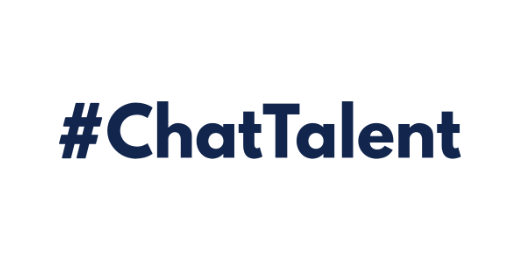Several years ago, I lived down in Clearwater, FL and it was a great place for the outdoors. It’s on the beach, there’s great fishing, water sports and best of all for me…Clearwater is home to the Clearwater Phillies.
The minor league baseball team for Major League Baseball’s Philadelphia Phillies. Every Spring, Major League Baseball players would descend upon Clearwater for Spring Training. And every Spring I would skip school to drive over to the baseball fields. Hoping to catch a glimpse of the players working out and playing some games.
It was truly amazing to see some of the biggest names in professional baseball working out and playing right in front of me. Not in a huge stadium, but within the confines of a small baseball field. Allowing fans to capture the true spirit and love of the game of baseball.
I remember being mesmerized. It wasn’t the fact that these guys made millions of dollars playing a kids game. It wasn’t the fact that there were some of the biggest names in baseball right in front of me. Or that they interacted with the crowd signing tons of autographs and having conversations. What mesmerized me most was the fact that these guys were arguably some of the greatest baseball players in the world and here they were. Right in front of me. Starting their season by conducting basic baseball drills. Similar drills I performed when I started my baseball career playing coach pitch.
Fast forward to present day, unfortunately, my dream of being a professional baseball player did not work out.
Now, I hunt for talent each day.
From my perspective, the recruiting and human capital industry have drastically changed and evolved over the past decade. So much so, that today I believe it is oversaturated with staffing firms, HR technology and a million job boards.
But where has this evolution led us to? Recruiters now live in a world of fancy recruiting tools. With social media platforms and mountains of resumes. As well as the never-ending calls and emails from salespeople and vendors.
In this technology-driven world we live in two seismic shifts have occurred. Recruiters have become overwhelmed and candidates have become frustrated. Although technology can be a wonderful enhancement to business and everyday life, it can also be a detriment. Especially in an industry where success requires and demands proper communication.
This is precisely the moment where we can all pause, take a deep breath and go back to the basics. More importantly, in this case, the recruiting basics.
Lets minus out the technology, the social media, the sales calls…all of it. Let us go back to the foundation of recruiting and remember what brings success.
Next time you are feeling overwhelmed or in a rut, go back to these basics. I promise you’ll feel and perform a whole lot better.
Recruiting IS Sales
It does not matter if you are an external or internal recruiter. Fact is, being a Recruiter is a sales job. Your job is to sell yourself, the opportunity, and the company. It is also your job to treat people with dignity and respect to win their trust. Do not ever take the responsibility of having someone change jobs lightly. Studies have shown that changing jobs can be one of the most stressful events in one’s life. The more you can demonstrate understanding, communication, and empathy…the more successful you will become.
With your clients, be their guide and subject matter expert. Show them the path forward, communicate often, even when there is not good news. Clients hate to be left in the dark. If they wonder ‘what is going on with my search’, you are already failing. Communication is key to any relationship – Sales 101.
The Job Order
It all starts with taking a proper job order. It may be called different things in different parts of the world: intake call, kick off call, order intake, etc.
Whatever you choose to call it, start with it and be thorough.
Too many times I see recruiters try to recruit off a job description. Or rush through a proper intake meeting, skipping many pertinent details. When taking a job order, you should use a standardized and detailed form that covers off all relevant and pertinent position details. That way you can keep yourself organized and capture all the hard and soft details of the position. This information will help you articulate and ‘sell’ the position better to candidates.
Communication
I cannot stress the importance of communication enough. A lot of recruiters think that only the client/customer matters and communicates only to them. This is false. A great recruiter recognizes that there are two main and equally important customers that require and deserve proper and frequent communication. The hiring manager and the candidate(s). For hiring managers, set a weekly check in. Whether that call/meeting lasts 5 or 15 minutes, it does not matter. The point is to have a status check. To update on any activities, share feedback, align on changes or business matters, etc. If you can communicate like no other, you will be one giant step ahead.
The second point of communication should be with candidates. Let them know the process and what timing looks like when speaking with them. If you can set realistic expectations and outline the process, they will find it tremendously valuable. It will also set you apart from other recruiters, believe it or not.
Lastly, maybe most importantly, when you must decline a candidate, let them know. And do so with tact and professionalism. They will thank you as a ‘no is better than a nothing’
Matching
A great recruiter must know how to match! Taking the time to take a proper job order will give you the required and necessary skills, experience, personality traits, etc. for the ideal candidate.
Conducting a thorough and detailed interview will provide you with the necessary candidate details you need. Such as experience, career criteria, compensation requirements, etc. Once you complete the job order intake and candidate interviews; you should be able to lay both of your notes side-by-side to see if there is a potential match. If there is a match, submit the candidate; if not, politely decline the candidate and continue.
Relationship Building
One of the most overlooked fundamentals of recruiting is the ability to build and maintain relationships. Recruiting has become transactional. And technology has made it so that we hardly have to communicate with hiring managers and candidates. But falling into the technology trap has its repercussions. Recruiting is a trade that requires dialogue, interaction, and influence.
Simply sending a resume to a hiring manager is not good enough.
Trust me, if you work to establish relationships with hiring managers and gain their trust, your recruiting life will become 100x easier.
Building a strong relationship with candidates will allow you to gain their trust. Influence their decision-making, and build a professional network for years to come.
Relationships are important, if not the most important building block within recruiting.
Those who can do this and do it in a genuine manner will reap always reap great success.
Do not get me wrong, technology is a wonderful thing. However, recruiting is a people business and people want to be heard and communicated with.
Take advantage of the tools you have at your disposal. But always remember the foundation and building blocks of recruiting. Go back to the basics.






